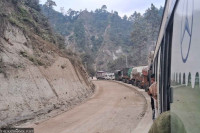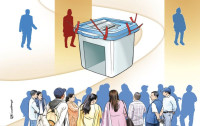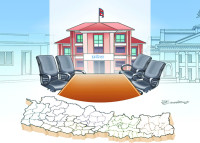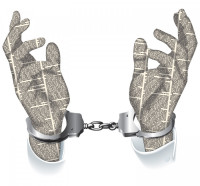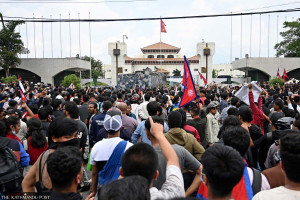Opinion
Medicine and the media
Instead of focusing on negative scandals, the media could actually help the medical field develop
Dr. Rabi Shakya
In Nepal, no field can be claimed to be perfect and the medical field is no exception. With the increasing number of low standard medical graduates and the lack of lucrative government job opportunities, the profit-driven private sector seems to have thrived and along with it, an ever-increasing unhealthy competition for business. In a country that lacks effective government monitoring and the implementation of rule of law to encourage the genuine and punish wrongdoers, the role of media in increasing public awareness cannot be overemphasised. However, if one reviews media coverage on medical issues in Nepal for even a week, one can easily come to certain unpleasant conclusions.
Focussed on negativity
More often than not, positive aspects of Nepal’s medical scenario are seldom highlighted. Even if they occasionally find space, such stories are placed under a small inconspicuous column. On the other hand, negative images and aspects have become selling points for many leading media houses. It is not difficult to observe that many such reports are sensationalised, without proper investigations, and worst of all, without proper understanding of technical aspects. This neglects the long-term impact of such articles as they even fail to account for the opinion of concerned experts. Instead, they are published as one-sided stories based on emotionally-charged ‘victims’, ‘relatives’ or ‘witnesses’. It seems that many scribes are not even aware of the basic stages of psychological reactions from people in situation of loss—denial, anger, bargaining, depression, and finally, acceptance. In the initial four stages, they display a tendency to project faults on others. At that point, what they actually need is delicate expert psychological counseling. Fighting with the hospital and medical caregivers is the last thing that can help resolve their emotional turmoil.
Every scientific fact also has a certain margin of error. Besides, accidents and human error happen even with the best of efforts. Certain things are simply unpredictable and not always under human control, not just in Nepal but everywhere. Deadly allergic reaction to certain medications is one example. Doctors are not god, we are simply warriors against diseases. Losing and winning battles are the rules of the game and when it comes to warding off death, even the best hospital in the world is always at the losing end, sooner or later. The media tends to disregard this fact. No wonder, Nepalis have the impression that all hospitals abroad are perfect.
Given the spate of negative reporting, one might suspect that scribes have preconceived notions that all Nepali medical personnel and hospitals are incompetent or corrupt. Just as every journalist in Nepal cannot be suspected of being manipulative, incompetent, or corrupt, the whole medical fraternity cannot be generalised. All too often, “doctor’s negligence”, “misdiagnosis”, and “hospital’s business motive” are staples of the news. After sensationalising, the media seldom bothers to follow up on the aftermath of the report. If the report is to be found false, one does not see any apology on the part of the media or the reporter.
More than beats
This is an era of specialists and subspecialists; maybe it is time for journalism too to institute subspecialties like medical, business, politics, and crime. The jack-of-all, master-of-none attitude in journalism seems to be doing injustice as far as medical journalism is concerned. This trend seems to be increasing distrust in the general populace. When something goes amiss, there is a tendency of vandalism and inappropriate claims for compensations. On the one hand, the media seems extremely critical about political leaders going abroad for even routine health check-ups, but at the same time, the media seems perpetually entitled to portray Nepal’s medical fraternity in a negative light. Is this not a double standard?
Of course, wrong-doers must be dealt with, but it is equally important to encourage the right. The media would do better to advocate for the establishment of proper legal procedures to file suits against the negligent. The current trends would make even genuine practitioners defensive. Already, trends of hospital vandalism and physical assaults on medical personnel are rampant. Doctors outside the Valley do not dare to take any risk, even for cases within their competency, and hasten to refer cases to bigger cities. If this trend continues, doctors in the cities too will begin to refer more and more patients abroad. This will only add to the cost and suffering of poor Nepalis.
Journalism is considered the fourth organ of the state, after the legislative, judiciary, and executive. And not without reason. The media can change people’s ways of thinking, their attitudes and behaviour. The media can influence the psyche of people to such an extent that businessmen, politicians, and people from all walks of life use (sometimes abuse) it as effective tools for various purposes. When a dictator wants to control the people, the media is always the first target. After the advent of democracy and now republicanism, the Nepali media has progressed in leaps and bounds in terms of freedom of speech. It can now play a positive role in shaping the medical scenario of the country. After all, the media bears a huge ethical/moral responsibility to maintain peace and harmony and further the development of the country.
Dr Shakya is an associate professor and head of the Department of Psychiatry at the Patan Academy of Health Sciences, Lalitpur




 5.46°C Kathmandu
5.46°C Kathmandu
